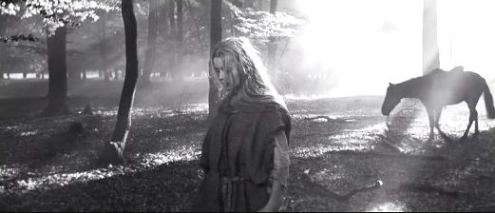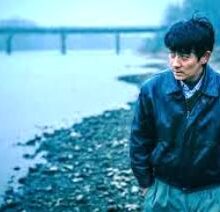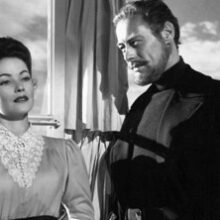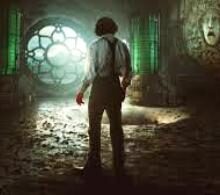

A bold adaptation of a famous Czech novel about brutal conflict in 13th century Bohemia, and the struggle between power and innocence.
Marketa Lazarová, the 1967 film by Czech writer-director František Vláčil, opens on a vast winter scene, wild horses running in the distance. A deep-voiced narrator says we are being told a series of stories that were assembled “almost at random.” We are plunged into a world of ragtag medieval warriors: stealing, fighting, and killing as they roam through a snow-covered landscape. It turns out that when the film says the stories are random and unworthy, it is seeking to convey the actual experience of being someone in those stories. If you by some magic spell were dropped suddenly into (in this case) 13th century Bohemia, you too wouldn’t know exactly what was going on.
Marketa Lazarová is an adaptation of a Czech classic of the same name from 1931, by Vladislav Vančura. It took four years for Vláčil, with co-screenwriter František Pavlíček, to adapt the novel and for their team to do the time-intensive research into medieval Bohemian and Saxon clothing, appearance, structures, weapons, and so forth. Vláčil was a perfectionist about this, and the look of the film validates him. It does look like a 13th century world, as far as that’s possible, but the director’s style carefully avoids anything picturesque or like “costume drama.” The speech and actions of the characters seem like spontaneous behavior occurring now, and not in some distant past.
There are two warring factions: one band headed by an old man named Lazar, which is nominally Christian, and a ring of pagan thieves, whose chief is another old man named Kozlick. But as a wandering monk character says to himself, there’s no real difference between the two sides: they’re both pagan.
Anyway, two of Kozlick’s sons raid Lazar’s camp and kidnap his beautiful daughter Marketa, played by Magda Vásáryová, after which one of them rapes her. Marketa is the image of innocence, a girl who hasn’t known anguish before. The film means to have us recognize the strength behind this innocence, and the way the men in this world abuse it while also marveling at its beauty.
The style is very unusual. Events and plot lines interweave with no dramatic emphasis to tell us what is or isn’t significant. We can only see the chaos of people’s impulsive words and behavior. All their actions take place against the background of wild nature, with its own starkly beautiful life, seemingly indifferent to their strivings.
The visual style of this movie is like nothing else I’ve ever seen. The black-and-white cinematography is awe inspiring. The hyper-modernist score by Zdenek Liska perfectly envelopes the film. I admit to wanting to watch it again and try to piece everything together more, but I think there’s another kind of artistic logic here. We don’t normally understand everything going on in our present lives. Vláčil creates just that realistic effect.
The world of this movie is brutal, ignorant, cruel, and violent. In the last forty minutes or so, the visual style becomes spooky. It’s not a horror film, yet there’s an unnerving sense of dread at work. Novel and film flew in the face of prevailing sentimental or triumphal historical fiction. The picture had a shattering effect on me. Marketa Lazarová is a genuine tragedy, with an immediacy that creates a radical experience.






